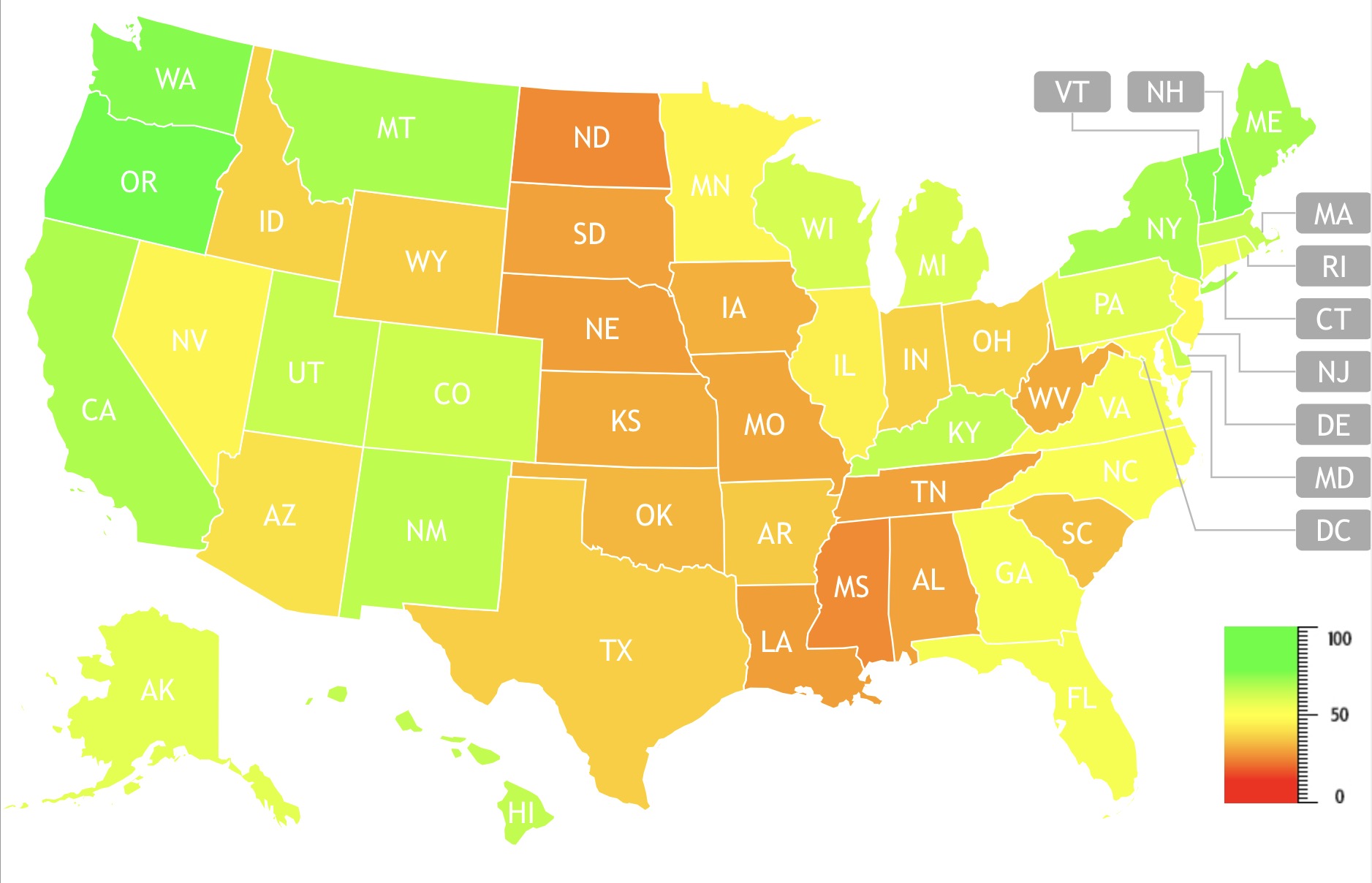
- Inspiring People -
- 4mins -
- 838 views
Study Reveals Almost 10 Million Americans Are Now Vegan — a 300% Increase!
A recent study has revealed that the number of Americans following plant-based diets is up nearly 9.7 million over the last 15 years: a 300% increase and nearly 3% of the population in the United States
Study explores the explosion of veganism in the United States
A new study has revealed that Veganism in the US has grown from obscurity to become a mainstream part of the American diet. Since 2004, the number of Americans turning plant-based has reached 9.7 million people, growing from around 290,000 over a period of 15 years. This is a 300% increase and almost 3% of the total population in the United States.

Using an interactive map the research shows which states have the most interest in veganism
Ipsos Retail Performance who conducted the study has revealed the sheer scope and magnitude at which a plant-based vegan diet has spread across the country. — as reported by Vegan News earlier this month.
Using a 15 year period to research within the study showed that those following plant-based diets increased from just 290,000 people 15 years ago to more than 9.7 million people today.
The data which stretches between 2004-2019 is illustrated on their interactive map and timeline which the findings show:
- The most consistently ‘vegan’ state is Oregon, achieving the highest search value for 12 years out of 15. This is followed by Vermont, Washington, and California.
- The state which is most reluctant to seek out vegan trends (and therefore the biggest meat-eaters) is Mississippi, followed by South Dakota, Alabama and North Dakota.
- Political leanings correlate with how vegan each state is, with the top 10 biggest vegan states all largely Democrat voters, and the 10 lowest vegan states all largely Republican.
- The states seeing the biggest change in attitudes include Nevada (38 point increase in vegan searches) and New Hampshire (31 point decrease in vegan searches).
Throughout the period covered in the research, the North Eastern and West Coast states showed the earliest interest in veganism.
More states followed suit in 2013, where there was a significant increase in interest-driven by high profile awareness driven by celebrities and the increased availability of meat alternative products in stores and restaurants.
Commenting on the map, Kelly Fairchild, a global business development manager from Ipsos Retail Performance said:
“Plant-based diets are fast becoming mainstream, but the change hasn’t been a steady one. Recent years have seen rapid adoption of vegan diets and more meat-free products making their way onto shelves. As the dialog around veganism shifts from one of animal welfare, to wider concerns around climate change and personal health, we are seeing more and more people adopt this once minority dietary preference.”
To view the full timeline and interactive map click here.
Source: VeganNews

5 WAYS TO REDUCE THE CARBON FOOTPRINT OF YOUR DIET
We recently published an article entitled “Focus on what you eat—not whether your food is local—if you want to reduce your carbon footprint”. One of the top five things you can do for your own health, for the planet, and for animals, is to eat less meat, or even none at all. Here are the 5 ways to reduce the carbon footprint of your diet:
- Try to avoid the consumption of the most polluting foods/drinks (i.e. less meat, more plant-based. Less coffee).
- Eat what is in season locally.
- If you want to eat something that is not in season locally, investigate what the best origin is, even though it may not necessarily be the nearest option.
- Bring your own shopping & produce bags.
- Make sure to consume what you bought.
These small changes can make the world of difference 🌍🥝🥒🍒🍊. To read the full article, click here.

